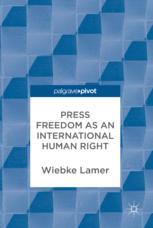

Most ebook files are in PDF format, so you can easily read them using various software such as Foxit Reader or directly on the Google Chrome browser.
Some ebook files are released by publishers in other formats such as .awz, .mobi, .epub, .fb2, etc. You may need to install specific software to read these formats on mobile/PC, such as Calibre.
Please read the tutorial at this link: https://ebookbell.com/faq
We offer FREE conversion to the popular formats you request; however, this may take some time. Therefore, right after payment, please email us, and we will try to provide the service as quickly as possible.
For some exceptional file formats or broken links (if any), please refrain from opening any disputes. Instead, email us first, and we will try to assist within a maximum of 6 hours.
EbookBell Team

5.0
30 reviewsThis book examines why press freedom has not become part of the established international human rights debate, despite its centrality to democratic theory. It argues that an unrestricted press is not just an important economic actor, but also an influential power in the political process, a status that interferes with government interests of sustaining their own power and influence. Despite the popularity of ideational explanations in the field of human rights studies, in the case of promoting press freedom, considerations of power and strategic interests rather than ideas dominate state behavior. The author makes the case that the current place of press freedom in the human rights debate needs to be rethought not only in developing countries, but in liberal democracies as well.